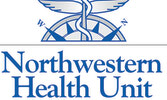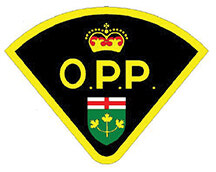Local monkeypox update
Northwestern Health Unit - Issued on July 28
Special to The Bulletin
Recently the World Health Organization (WHO) declared monkeypox a global health emergency. WHO declares a health emergency not as a call to panic, but as a call to action, when a coordinated effort among many countries in the world is required to control a risk to health. Currently, there has been an increase in cases provincially, with the majority being in the Toronto area. There have been no cases reported in the Northwestern Health Unit (NWHU) region, however spread can occur as people travel to, or visit from, areas with cases. If a case is reported to NWHU, the public will be notified.
The most common symptoms of Monkeypox include a rash with blisters, fever, headache / muscle aches, tiredness, and swollen lymph nodes. Monkeypox can spread through close physical contact with someone who has symptoms. Since currently, most cases are being seen in males who report sexual or intimate contact with other males, it is important that this group can access judgement-free care. The most commonly reported risk factors include having intimate contact with new and/or more than one partner, however, as the number of cases globally increases, it is important that everyone is aware of the risk. Monkeypox is not a sexually transmitted infection, it is a human contact infection, so all people are potentially at risk.
At an individual level, the best way to prevent monkeypox is by limiting contact with people who have symptoms of monkeypox or a suspected or confirmed monkeypox diagnosis. Prevention measures include:
- Isolating and contacting a health care provider if you have symptoms
- Wearing a mask if you have symptoms and must be around others
- Avoiding skin-to-skin, face-to-face, and sexual contact with anyone who has symptoms
- Avoid sharing clothing, bedding, towels, cups, or utensils
- Covering any sores
“It is important that anyone who thinks they may have monkeypox connects with a health care provider right away; this disease can be controlled when care is given early,” says Dr. Kit Young Hoon, Medical Officer of Health at NWHU.
NWHU continues to monitor the data and has sent resources about the virus to health care providers and partners, including a handout for patients / clients who may be more likely to be at risk for monkeypox.
For more information on the virus, please visit the following webpages:
Government of Canada: https://www.canada.ca/en/public-health/services/diseases/monkeypox.html
Public Health Ontario: https://www.publichealthontario.ca/en/Diseases-and-Conditions/Infectious-Diseases/Vector-Borne-Zoonotic-Diseases/Monkeypox
Gay Men’s Sexual Health Alliance: https://gmsh.ca/monkeypox/
Two local high school students in the Ontario Provincial Police's (OPP) Youth In Policing Initiative program collected data on unsafe driving practices in town over a five-day period in June....



